“Nobody died and made you king,” is a saying that is rarely as topical as it is this week.
A friend of mine used to say it to me all the time. It was their way of reminding me that that my opinion is no more valid than anyone else’s.
I tend to have opinions on most things, from politics and farming to books, music, films, and sport.
As an aside, I have to note that Prince Charles ascends the throne and succeeds his mother having spent 70 years as heir apparent. There is hardly a small farm in Ireland where a son was made wait so long to inherit the land.
Anyway, why am I saying that nobody passed away and made me monarch? It’s in relation to the Farmers Alliance meeting I attended in Naas last weekend.
The meeting was in the Osprey Hotel, and my opinion of it, while honestly expressed here, is no more valid than that of the other 60 people present.
It’s probably fair to say that every political movement starts out the same - a small group of very motivated people with a shared vision.
Some of these movements barely break the ground, others flower for a short while, and a few become hardy perennials, part of the political landscape. But they all start the same, and it’s probably very hard to pick a winner from an early meeting.
Who could have predicted in early 1916 that a motley crew of poets, trade unionists and veteran republicans would succeed where all who had gone before them had failed, and cause the Irish people to rise up and liberate the country from our imperial master, the new king of England’s great grandfather?
But that is just what happened, so we should be very slow to write off any political movement.
Perhaps it’s partly timing and partly luck that sets successful political movements apart - the right idea in the right place at the right time.
It’s also likely that any movement needs charismatic and/or articulate leaders, particularly in this age of mass communication.
And if the political movement is running strongly counter-culturally to the mainstream, it needs to be at a time when there is a palpable undercurrent of unrest and disconnection with that mainstream among a significant group of people.
Door partly open
There is a sense that by those criteria, the door is at least partly open for the Farmers Alliance.
The organisation was founded by a small group, including Cormac Power, a drystock farmer from Offaly; Liam McLoughlin, a drystock farmer from Donegal; and George O’Malley from Mayo, who is not a farmer, but who has been involved in forestry as a consultant.
I spoke to all three after the meeting, to try and place what I had witnessed in context.
This was the organisation’s third public event. The first was a meeting in February to take soundings, the second was the formal launch in early April, both in Athlone.
I understand the first meeting had a similar turnout to this third one, but the launch in between was well attended.
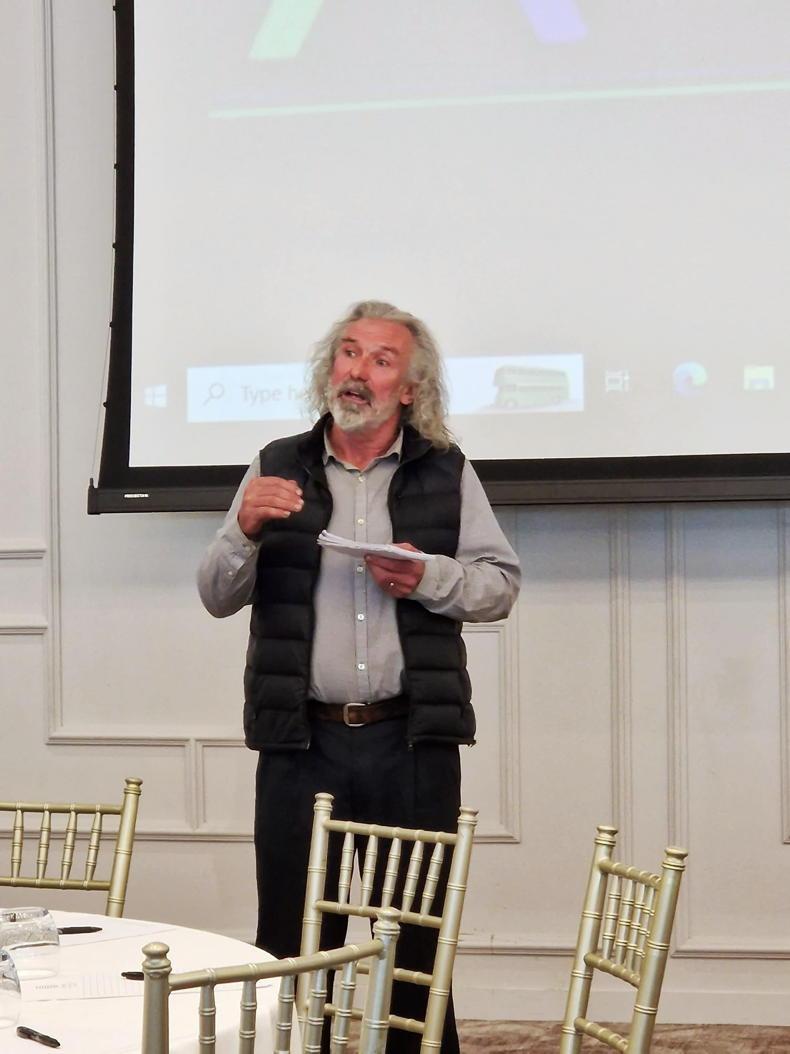
David O'Reilly at the Farmers Alliance meeting in Naas.
Perhaps that was in part because Caroline van der Plas addressed it. Europe’s hottest political property, the Haaland of Holland's recent election, is box office (I know it’s the Netherlands, please allow a little alliterative licence).
Perhaps her presence was only virtual, but it was her first appearance at a public forum in Ireland since she was catapulted into international prominence when leading the BBB - the Dutch Farmer Citizen Movement - to a poll-topping performance in local and senate elections.
Can the Farmers Alliance become the Irish BBB, and tap into the dissatisfaction with Government that is apparent in rural Ireland?
The answer based on last Sunday has to be no for me, not if what I saw indicates the course the movement is set on.
The meeting started out pretty conventionally, with organic farmer Colman Power explaining his journey. He has written a book called The Power of Organic Fitness and said it was no wonder that people were getting sicker as many people are eating “processed mush”.
We heard from Dan Curley of the National Association of Regional Game Councils. He gave a lengthy and authoritative address about how his organisation was fighting creeping control on country sports, whether the ban on lead shot, or the failure of Minister of State Malcolm Noonan to renew the derogation allowing farmers to protect their crops from magpies, crows and other birds.
Dr Vincent Carroll, who spoke next, was a crowd-pleaser. Beginning with an outline of a changing climate in medieval Greenland, his eloquent and passionate polemic questioned climate science.
He called for evidence that climate change is linked to human activity or carbon concentration in the atmosphere to loud applause.
He then said that a two-speed climate action programme was unfair, comparing Ireland and Europe to China and India, where fossil-fuel power stations are being built as we are decommissioning them.
He described the climate agenda as being “the jackboot to impose ideology”.
I have to be honest. Whatever Dr Vincent Carroll is selling, I’m not buying it. But I’m not the king, that’s only my opinion.
Linda De Courcy, a nutritionist from Dundrum, also spoke. She said that she would advocate the eating of meat as part of a healthy diet - no argument from me there.
She said that cows were being blamed for everything from heart disease to climate change.
Then she commented that the flatulence from a person who doesn’t eat meat has more methane than that of someone who does. I have no idea if this was said in seriousness or as a joke. In either event, it was a surreal moment in an increasingly surreal afternoon.
The next speaker was another medical doctor, Gerard Waters, who practised locally.
Practised past tense, because, he informed us, he had been struck off for his opposition to COVID-19 vaccines and for opposing lockdowns.
He was in the middle of a very personal testimony when Cormac Power intervened to bring the meeting back to something more relevant to the agenda as published for the meeting.
This angered some present, who seemed to be supporters of the doctor.
It wasn’t the first mention of COVID restrictions. Earlier, Roseanne Dolan had spoken about a food co-op she was involved in. It strives to source high-value production food, including organic food.
She then explained how the co-op had been formed during lockdown, in part because she and others were finding it hard to source food due to the mask mandate.
This seemed unnecessary information, and placed her perspective in a certain category, one most Irish people seemed not to be in during lockdown.
Cormac Power kept the microphone, and spoke about how primary producers are being devalued, referencing Scottish lamb imports.
A man named Peter O’Donoghue was introduced next, who we were told by chair Jacqueline Gibson would speak of his experience in Teagasc.
He never mentioned Teagasc, but spoke of “rearing up against an insane agenda”, describing the green agenda as being about power, money and control.
We also heard from David O’Reilly, who described Fianna Fáil and Fine Gael as being “hostage to the €300bn national debt” and the global agenda of the likes of US investment giant BlackRock. His credibility for me was undermined by his statement that Irish farming’s main exports were “pizza and powdered milk”.
In a three-and-a-half-hour meeting, we heard nothing of transport, housing, education, the health system (outside the COVID/lockdown stuff) or the everyday issues affecting rural and urban dwellers.
It’s not fair to judge a meeting on the things that weren’t covered, but the things that were discussed seemed on the fringes of the national conversation, whether held in the Dáil, mart or pub.
Misstep or a step in the right direction?
What stands out for me about George O’Malley, Cormac Power and Liam McLoughlin is that they are genuine people of integrity.
They feel strongly enough about the direction Ireland is taking that they have become activists, developing this new movement. I found them engaged and engaging, interesting and interested.
Unfortunately, that’s not enough.
The Farmers Alliance say they have a clear vision of how they want to forge links between food producers and consumers to build sustainable food systems. Among their ambitions is to become importers onto the island of feed and fertiliser. While critical of how other organisations are representing farmers at present, Cormac stressed that the Farmers Alliance are willing to speak to other organisations. They want to support small producers and small farmer co-operatives, engaging with family merchants, contractors, farmers markets and small-scale processors. They want to address the absence of a meaningful share of the profits farmers get from the food chain.
Crucially, the Farmers Alliance do not see themselves as an exclusively rural movement. The Naas meeting was an early example, I was told, of creating connections with urban people, to raise the consciousness of consumers.
This vision for food production and consumption fits into a broader political vision that George O’Malley outlined to me as one where Ireland needs to take back control from a globalist agenda. Property rights are a particular concern, whether it’s rewetting, restricting hunting or shooting rights or greenways.
When George O’Malley addressed the meeting, he warned of how the World Health Organisation are striving to gain the power to declare a pandemic. By as soon as 2024, he warned, we could see this power used to create lockdown-type conditions around a new pandemic, or perhaps climate change could be categorised as a pandemic.
Every famous rock band recounts a horror story of an early gig where three people and a cat turned up, or where they fled for their lives from an angry bunch of Hell’s Angels, rednecks or some street gang.
Perhaps the Farmers Alliance will look back on the Naas meeting as part of their early learning process.
Or perhaps the issues that dominated the meeting will come to dominate the agenda, and the Farmers Alliance will be an anti-authoritarian, climate-sceptic (very sceptic) group. It was stressed to me the founders do not see themselves as being on the right, but the agenda expressed by many the speakers in Naas tends to attract people on either extreme of the political horseshoe - left and right.
That would not reflect the vision of the founders as expressed to me, but such is the fate of many groups and their founders.
“Nobody died and made you king,” is a saying that is rarely as topical as it is this week.
A friend of mine used to say it to me all the time. It was their way of reminding me that that my opinion is no more valid than anyone else’s.
I tend to have opinions on most things, from politics and farming to books, music, films, and sport.
As an aside, I have to note that Prince Charles ascends the throne and succeeds his mother having spent 70 years as heir apparent. There is hardly a small farm in Ireland where a son was made wait so long to inherit the land.
Anyway, why am I saying that nobody passed away and made me monarch? It’s in relation to the Farmers Alliance meeting I attended in Naas last weekend.
The meeting was in the Osprey Hotel, and my opinion of it, while honestly expressed here, is no more valid than that of the other 60 people present.
It’s probably fair to say that every political movement starts out the same - a small group of very motivated people with a shared vision.
Some of these movements barely break the ground, others flower for a short while, and a few become hardy perennials, part of the political landscape. But they all start the same, and it’s probably very hard to pick a winner from an early meeting.
Who could have predicted in early 1916 that a motley crew of poets, trade unionists and veteran republicans would succeed where all who had gone before them had failed, and cause the Irish people to rise up and liberate the country from our imperial master, the new king of England’s great grandfather?
But that is just what happened, so we should be very slow to write off any political movement.
Perhaps it’s partly timing and partly luck that sets successful political movements apart - the right idea in the right place at the right time.
It’s also likely that any movement needs charismatic and/or articulate leaders, particularly in this age of mass communication.
And if the political movement is running strongly counter-culturally to the mainstream, it needs to be at a time when there is a palpable undercurrent of unrest and disconnection with that mainstream among a significant group of people.
Door partly open
There is a sense that by those criteria, the door is at least partly open for the Farmers Alliance.
The organisation was founded by a small group, including Cormac Power, a drystock farmer from Offaly; Liam McLoughlin, a drystock farmer from Donegal; and George O’Malley from Mayo, who is not a farmer, but who has been involved in forestry as a consultant.
I spoke to all three after the meeting, to try and place what I had witnessed in context.
This was the organisation’s third public event. The first was a meeting in February to take soundings, the second was the formal launch in early April, both in Athlone.
I understand the first meeting had a similar turnout to this third one, but the launch in between was well attended.

David O'Reilly at the Farmers Alliance meeting in Naas.
Perhaps that was in part because Caroline van der Plas addressed it. Europe’s hottest political property, the Haaland of Holland's recent election, is box office (I know it’s the Netherlands, please allow a little alliterative licence).
Perhaps her presence was only virtual, but it was her first appearance at a public forum in Ireland since she was catapulted into international prominence when leading the BBB - the Dutch Farmer Citizen Movement - to a poll-topping performance in local and senate elections.
Can the Farmers Alliance become the Irish BBB, and tap into the dissatisfaction with Government that is apparent in rural Ireland?
The answer based on last Sunday has to be no for me, not if what I saw indicates the course the movement is set on.
The meeting started out pretty conventionally, with organic farmer Colman Power explaining his journey. He has written a book called The Power of Organic Fitness and said it was no wonder that people were getting sicker as many people are eating “processed mush”.
We heard from Dan Curley of the National Association of Regional Game Councils. He gave a lengthy and authoritative address about how his organisation was fighting creeping control on country sports, whether the ban on lead shot, or the failure of Minister of State Malcolm Noonan to renew the derogation allowing farmers to protect their crops from magpies, crows and other birds.
Dr Vincent Carroll, who spoke next, was a crowd-pleaser. Beginning with an outline of a changing climate in medieval Greenland, his eloquent and passionate polemic questioned climate science.
He called for evidence that climate change is linked to human activity or carbon concentration in the atmosphere to loud applause.
He then said that a two-speed climate action programme was unfair, comparing Ireland and Europe to China and India, where fossil-fuel power stations are being built as we are decommissioning them.
He described the climate agenda as being “the jackboot to impose ideology”.
I have to be honest. Whatever Dr Vincent Carroll is selling, I’m not buying it. But I’m not the king, that’s only my opinion.
Linda De Courcy, a nutritionist from Dundrum, also spoke. She said that she would advocate the eating of meat as part of a healthy diet - no argument from me there.
She said that cows were being blamed for everything from heart disease to climate change.
Then she commented that the flatulence from a person who doesn’t eat meat has more methane than that of someone who does. I have no idea if this was said in seriousness or as a joke. In either event, it was a surreal moment in an increasingly surreal afternoon.
The next speaker was another medical doctor, Gerard Waters, who practised locally.
Practised past tense, because, he informed us, he had been struck off for his opposition to COVID-19 vaccines and for opposing lockdowns.
He was in the middle of a very personal testimony when Cormac Power intervened to bring the meeting back to something more relevant to the agenda as published for the meeting.
This angered some present, who seemed to be supporters of the doctor.
It wasn’t the first mention of COVID restrictions. Earlier, Roseanne Dolan had spoken about a food co-op she was involved in. It strives to source high-value production food, including organic food.
She then explained how the co-op had been formed during lockdown, in part because she and others were finding it hard to source food due to the mask mandate.
This seemed unnecessary information, and placed her perspective in a certain category, one most Irish people seemed not to be in during lockdown.
Cormac Power kept the microphone, and spoke about how primary producers are being devalued, referencing Scottish lamb imports.
A man named Peter O’Donoghue was introduced next, who we were told by chair Jacqueline Gibson would speak of his experience in Teagasc.
He never mentioned Teagasc, but spoke of “rearing up against an insane agenda”, describing the green agenda as being about power, money and control.
We also heard from David O’Reilly, who described Fianna Fáil and Fine Gael as being “hostage to the €300bn national debt” and the global agenda of the likes of US investment giant BlackRock. His credibility for me was undermined by his statement that Irish farming’s main exports were “pizza and powdered milk”.
In a three-and-a-half-hour meeting, we heard nothing of transport, housing, education, the health system (outside the COVID/lockdown stuff) or the everyday issues affecting rural and urban dwellers.
It’s not fair to judge a meeting on the things that weren’t covered, but the things that were discussed seemed on the fringes of the national conversation, whether held in the Dáil, mart or pub.
Misstep or a step in the right direction?
What stands out for me about George O’Malley, Cormac Power and Liam McLoughlin is that they are genuine people of integrity.
They feel strongly enough about the direction Ireland is taking that they have become activists, developing this new movement. I found them engaged and engaging, interesting and interested.
Unfortunately, that’s not enough.
The Farmers Alliance say they have a clear vision of how they want to forge links between food producers and consumers to build sustainable food systems. Among their ambitions is to become importers onto the island of feed and fertiliser. While critical of how other organisations are representing farmers at present, Cormac stressed that the Farmers Alliance are willing to speak to other organisations. They want to support small producers and small farmer co-operatives, engaging with family merchants, contractors, farmers markets and small-scale processors. They want to address the absence of a meaningful share of the profits farmers get from the food chain.
Crucially, the Farmers Alliance do not see themselves as an exclusively rural movement. The Naas meeting was an early example, I was told, of creating connections with urban people, to raise the consciousness of consumers.
This vision for food production and consumption fits into a broader political vision that George O’Malley outlined to me as one where Ireland needs to take back control from a globalist agenda. Property rights are a particular concern, whether it’s rewetting, restricting hunting or shooting rights or greenways.
When George O’Malley addressed the meeting, he warned of how the World Health Organisation are striving to gain the power to declare a pandemic. By as soon as 2024, he warned, we could see this power used to create lockdown-type conditions around a new pandemic, or perhaps climate change could be categorised as a pandemic.
Every famous rock band recounts a horror story of an early gig where three people and a cat turned up, or where they fled for their lives from an angry bunch of Hell’s Angels, rednecks or some street gang.
Perhaps the Farmers Alliance will look back on the Naas meeting as part of their early learning process.
Or perhaps the issues that dominated the meeting will come to dominate the agenda, and the Farmers Alliance will be an anti-authoritarian, climate-sceptic (very sceptic) group. It was stressed to me the founders do not see themselves as being on the right, but the agenda expressed by many the speakers in Naas tends to attract people on either extreme of the political horseshoe - left and right.
That would not reflect the vision of the founders as expressed to me, but such is the fate of many groups and their founders.





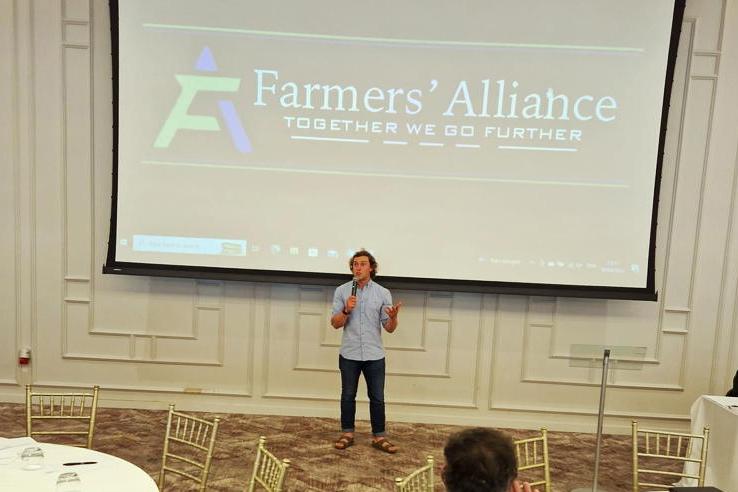
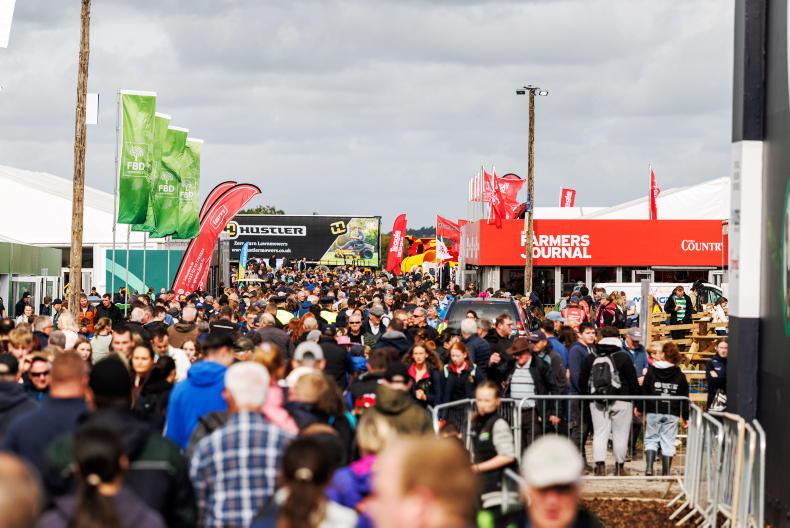
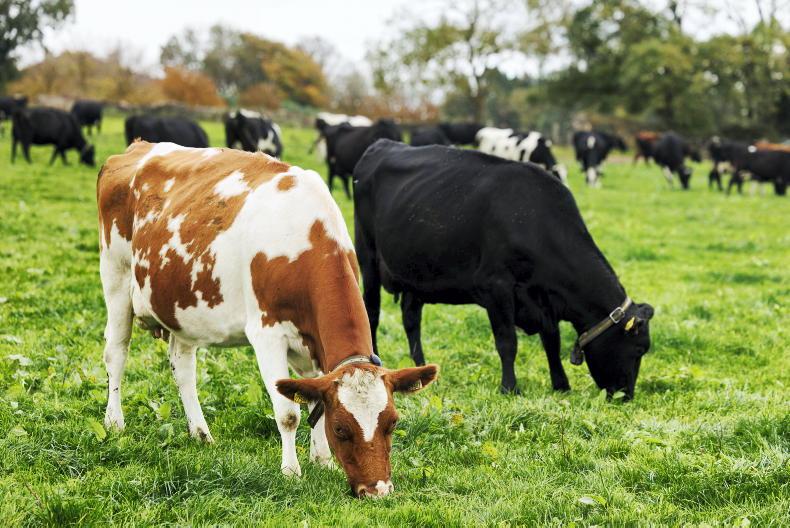
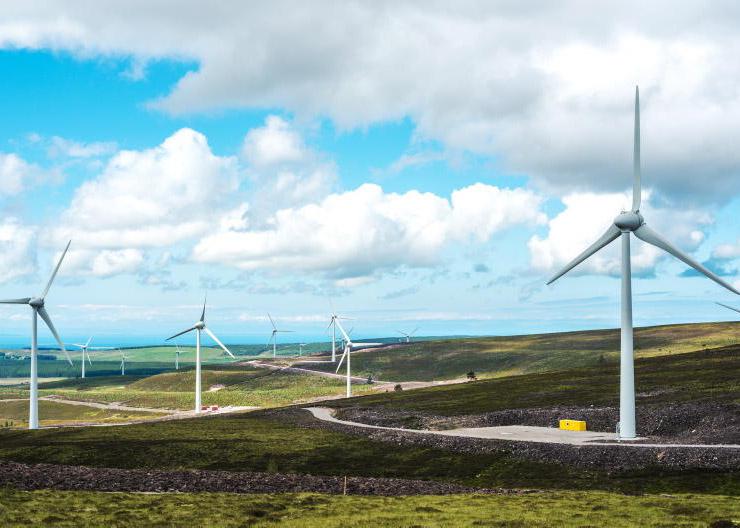
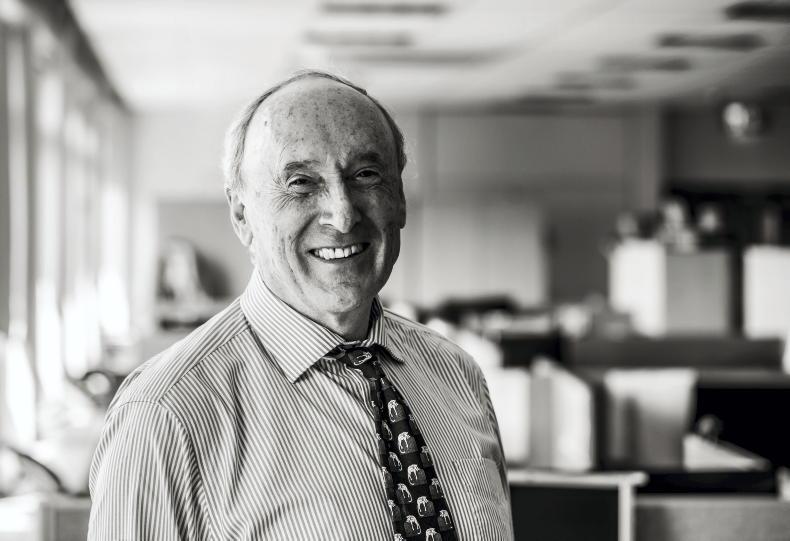
SHARING OPTIONS